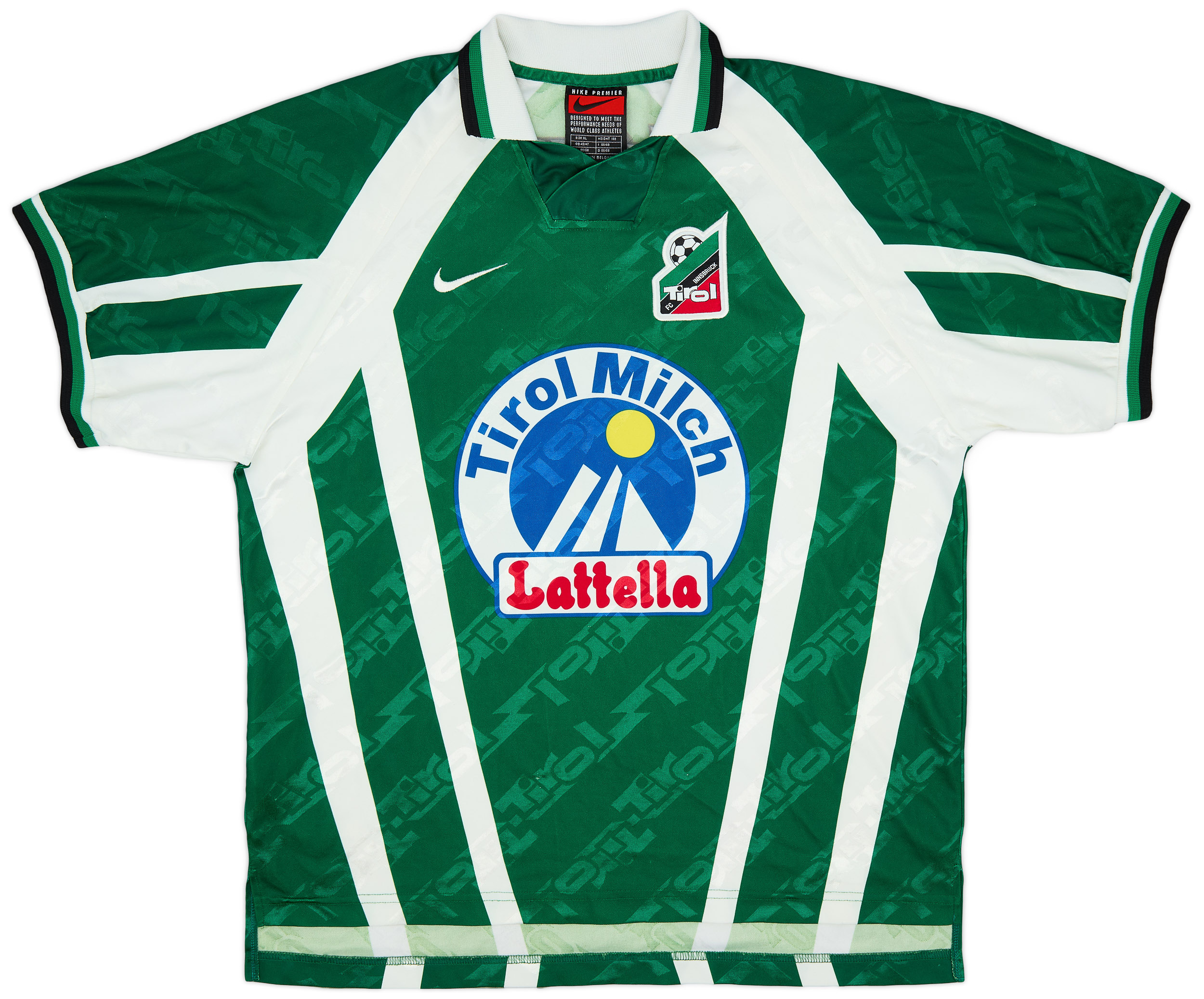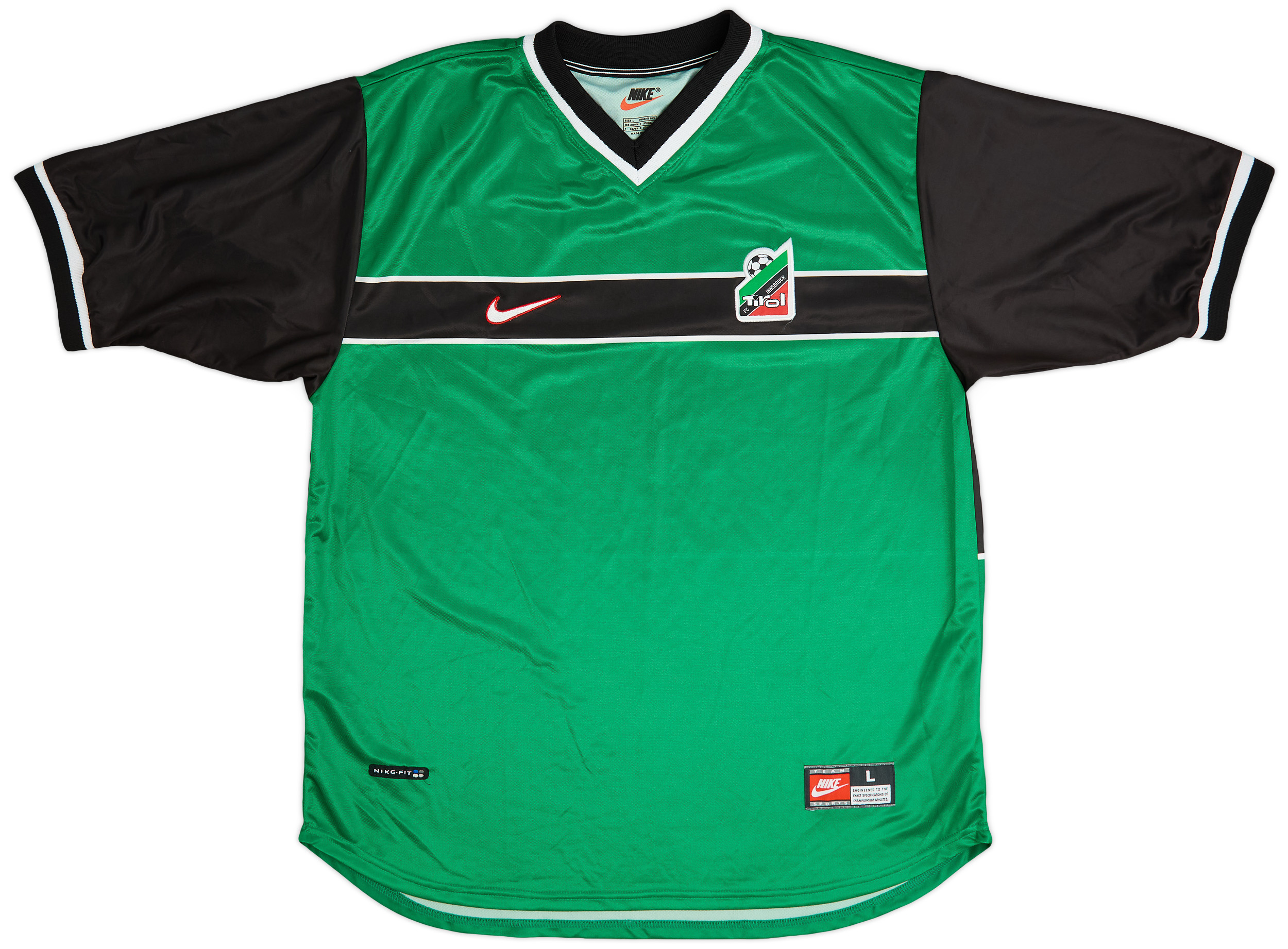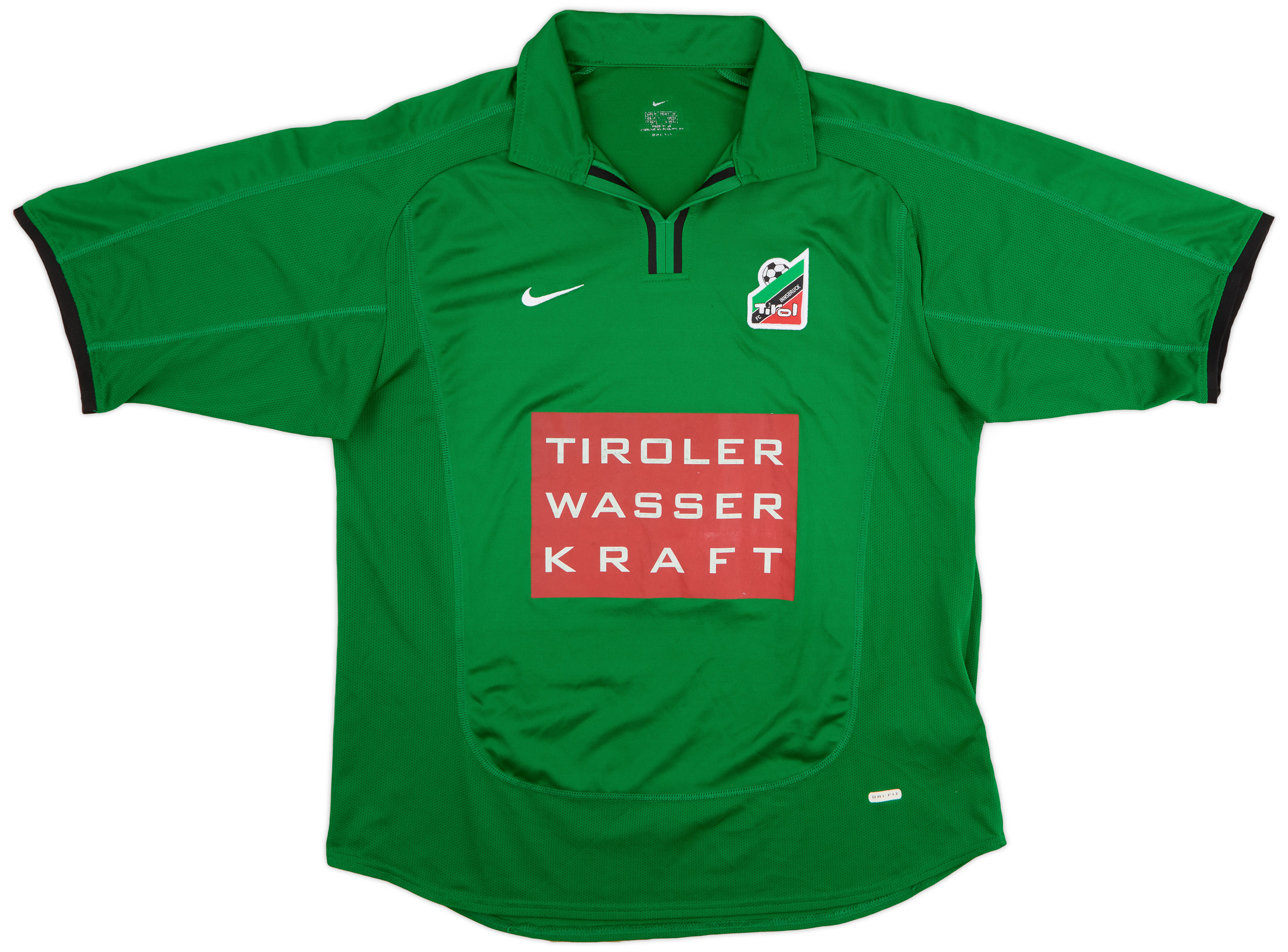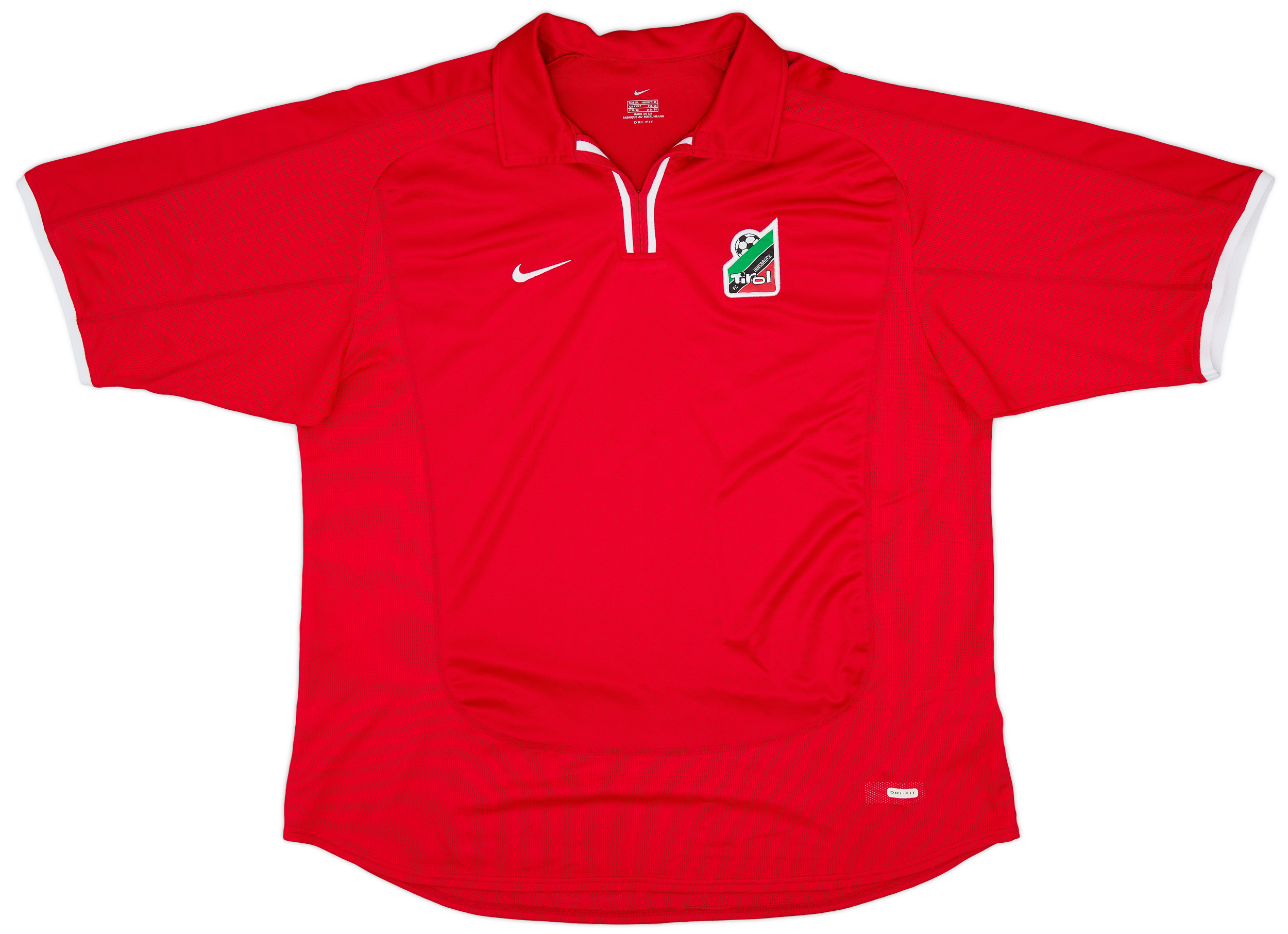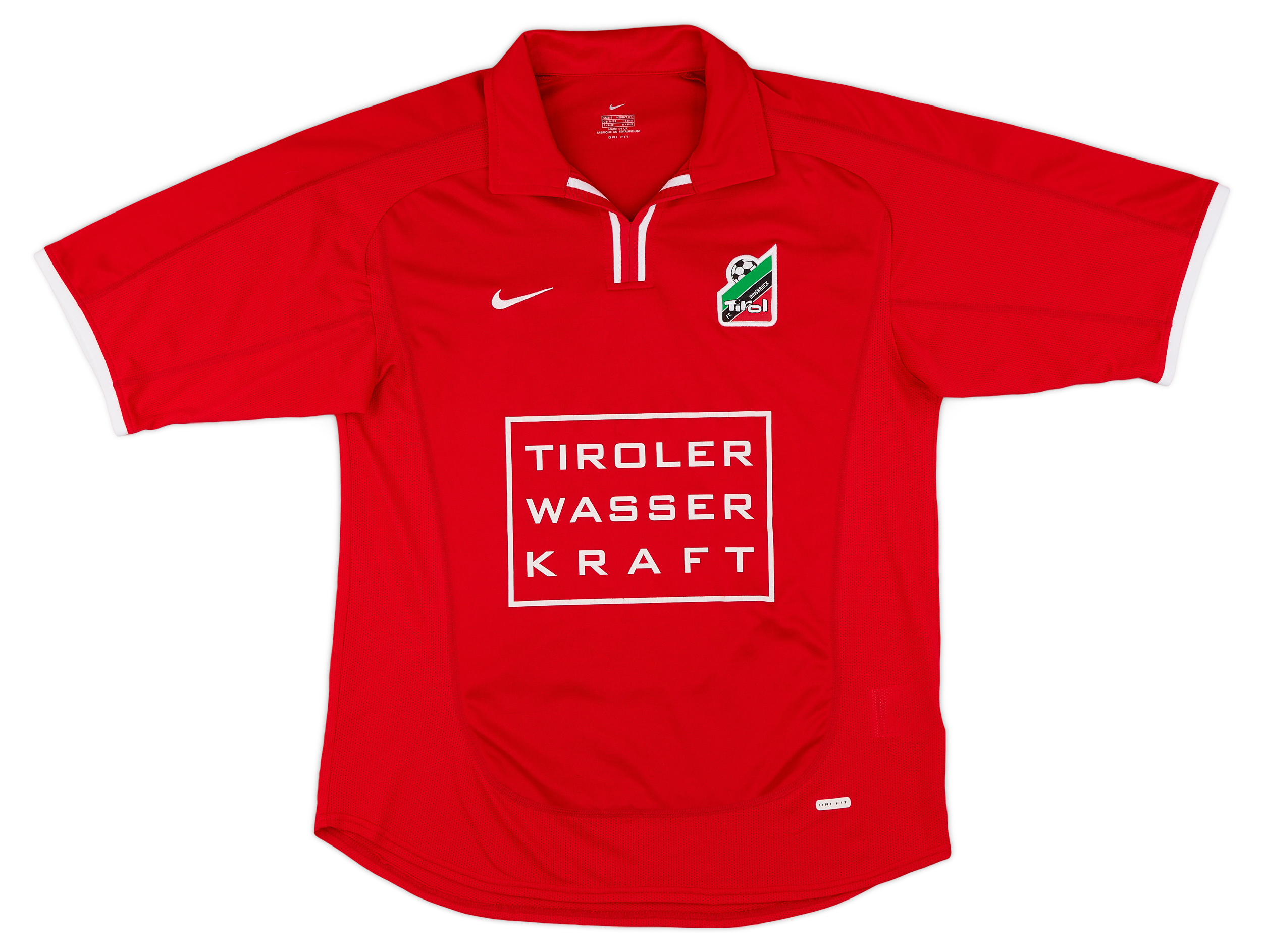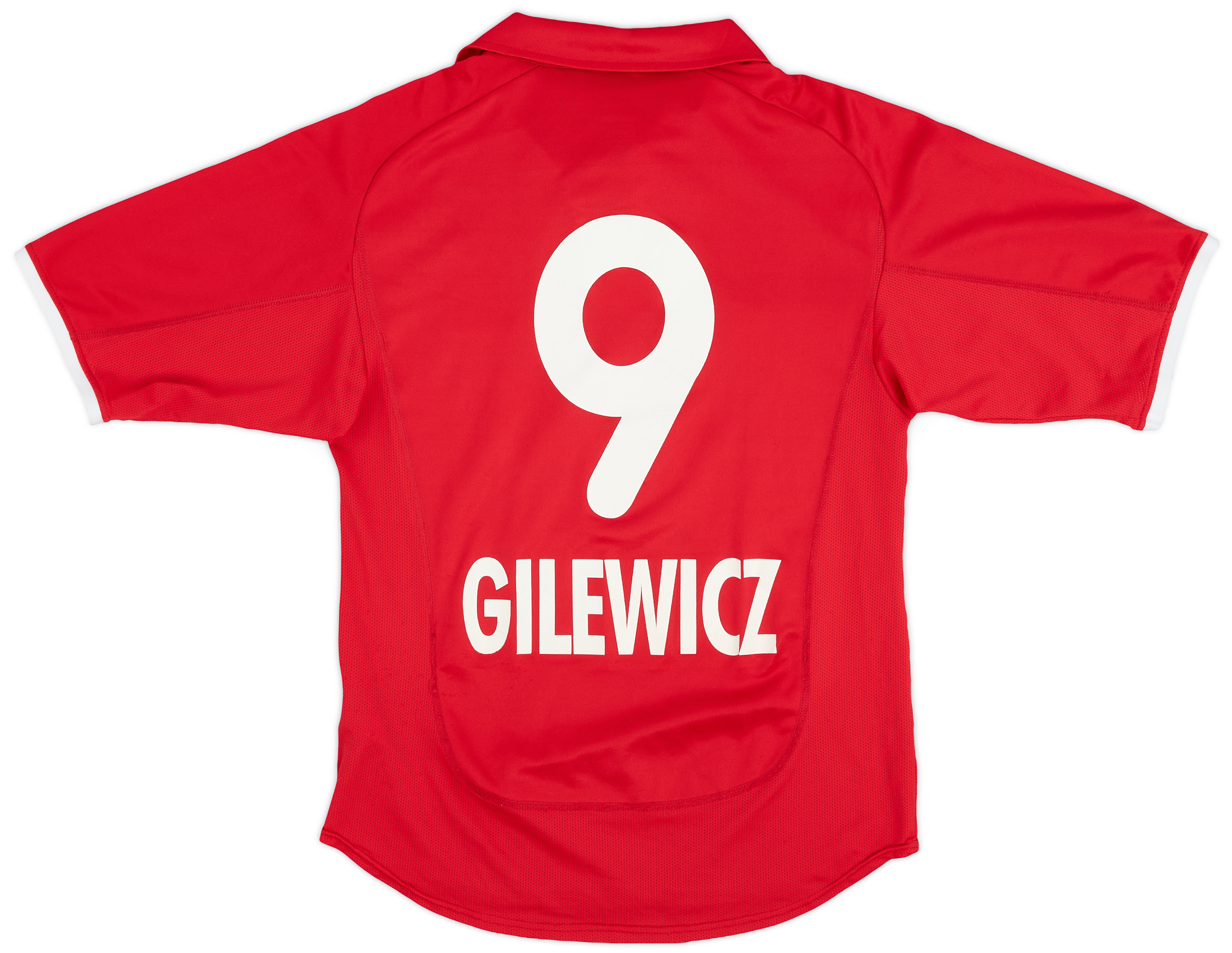Tirol Innsbruck
Introduction FC Wacker Innsbruck, commonly known as Tirol Innsbruck, is a professional football club based in Innsbruck, Austria. Established in 1913, the team features the iconic green and white colors and represents the stunning Tyrolean region, nestled within the heart of the Alps. Tirol Innsbruck is not only a symbol of regional pride but also […]
1996-98 Tirol Innsbruck Player Issue Away Shirt #13 - 7/10 - (XL)
207.99£ - ca: €245
1996-98 Tirol Innsbruck Home Shirt - 9/10 - (XL)
177.99£ - ca: €210
1996-98 Tirol Innsbruck Home Shirt - 9/10 - (L)
177.99£ - ca: €210
1996-98 Tirol Innsbruck Home Shirt - 9/10 - (L)
177.99£ - ca: €210
1999-00 Tirol Innsbruck Home Shirt Gilewicz #9 - 8/10 - (M)
148.99£ - ca: €176
1998-99 Tirol Innsbruck Home Shirt - 8/10 - (L)
118.99£ - ca: €140
1998-99 Tirol Innsbruck Home Shirt - 9/10 - (XL)
118.99£ - ca: €140
2001-02 Tirol Innsbruck Home Shirt - 7/10 - (M)
94.99£ - ca: €112
2000-02 Tirol Innsbruck Away Shirt - 9/10 - (XL)
70.99£ - ca: €84
2001-02 Tirol Innsbruck Away Shirt - 6/10 - (S)
58.99£ - ca: €70
1999-00 Tirol Innsbruck Home Shorts - 9/10 - (S)
47.99£ - ca: €57
2001-02 Tirol Innsbruck Away Shirt Gilewicz #9 - 8/10 - (XXS)
47.99£ - ca: €57
2001-02 Tirol Innsbruck Away Shirt - 3/10 - (S)
17.99£ - ca: €21
Introduction
FC Wacker Innsbruck, commonly known as Tirol Innsbruck, is a professional football club based in Innsbruck, Austria. Established in 1913, the team features the iconic green and white colors and represents the stunning Tyrolean region, nestled within the heart of the Alps. Tirol Innsbruck is not only a symbol of regional pride but also a club with a rich history in Austrian football, competing at various levels and winning numerous accolades. This article embarks on a journey through Tirol Innsbruck’s storied past, celebrating its achievements, notable players, and cultural significance within the community.
Club History
The roots of Tirol Innsbruck trace back to 1913, originally established as FC Wacker Innsbruck. The club quickly made a name for itself in regional competitions, and by the 1950s, it emerged as a competitive force in Austrian football. Notably, the club changed its name to FC Tirol Innsbruck in 1993 to further solidify its regional identity. Tirol had its golden years during the 1970s and 1980s, particularly under the leadership of coach Ernst Happel. During this period, the club made a significant mark in Austrian football and captured its first national titles.
The club has experienced various ups and downs throughout its history, including financial difficulties that led to its relegation and reformation in the early 2000s. The team faced bankruptcy in 2010, impacting its professional status. However, Tirol Innsbruck managed to bounce back, adjusting its focus on youth development and local talent.
Achievements
Tirol Innsbruck has enjoyed a successful track record in Austrian football, securing multiple domestic titles and national cups. The club has won the Austrian Football Bundesliga, the Premier Division, on five occasions: in 1967, 1971, 1972, 1973, and 1986. Additionally, they are proud winners of the Austrian Cup, having lifted the trophy three times during their history: in 1967, 1978, and again in 1993.
Internationally, Tirol Innsbruck made headlines by competing in European competitions. The club participated in the UEFA Champions League during the late 1980s and early 1990s, facing notable teams and increasing its visibility beyond Austria. Their most memorable European campaign occurred in the 1975-76 UEFA Cup when they reached the quarter-finals, showcasing the talent and determination of the squad at that time.
Significant Players and Matches
Throughout its history, Tirol Innsbruck has been home to many remarkable players who have left a lasting impact. One of the club’s most celebrated figures is the legendary striker Anton “Toni” Polster, known for his impressive goal-scoring abilities. He played a pivotal role in the club during the late 1980s and is remembered as one of Austria’s greatest forwards.
Another significant player was Franz “Bimbo” Riegler, a phenomenal midfielder who contributed to the club’s domestic success during the 1970s. Matches against rivals such as Rapid Vienna and Austria Vienna are etched in the memories of fans, often characterized by high tension and spirited competition. One notable match occurred in 1984, when Tirol Innsbruck overcame Rapid Vienna 2-1 in a thrilling encounter that showcased the club’s prowess on the pitch.
Cultural Impact
Tirol Innsbruck plays an essential role in the local culture of Innsbruck and the surrounding Tyrolean community. The club fosters a strong sense of belonging among its fans, known for their passionate support and unwavering loyalty. The club’s home games at the Tivoli-Neu stadium attract thousands of spectators, creating a vibrant atmosphere that unites fans of all ages.
Beyond mere entertainment, Tirol Innsbruck contributes to the local economy and serves as a source of pride. The club also prioritizes engaging with the community through outreach programs, youth initiatives, and partnerships with schools. By investing in local talent and encouraging youth participation in sports, Tirol Innsbruck remains a significant cultural institution promoting the values of teamwork, perseverance, and excellence.
Conclusion
Tirol Innsbruck has carved its niche in the annals of Austrian football history, marked by a rich heritage, remarkable achievements, and a passionate fanbase. The club’s journey from its inception in 1913 to becoming a resilient competitor in Austria’s top leagues underscores its significance in the sport. Despite facing adversities, Tirol Innsbruck has remained committed to its roots, continually striving to foster local talent and maintain its legacy. As it moves forward, the club will undoubtedly retain its status as a cherished institution, continuing to inspire generations of footballers and fans alike.
